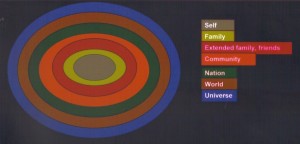
I was fortunate to grow rapidly in my career. At 33, I became the India CEO of a global firm and at 36, the MD for the Asia region. I was happy and proud of my success. However, as I look back, I had been steadily falling into the trap of what I now call, Successism.
Like many of the other isms in our society, such as racism, casteism, sexism and ageism, successism is an ill-perceived lens to view people as unequal. Successism excessively revers competition, achievement and visible success. We consider success as the defining feature of one’s identity and subconsciously perceive successful people as superior and less successful people somewhat lesser.
Clearly a dysfunctional way to relate to others and to ourselves. While striving for excellence in any field is a worthy pursuit, it’s a real problem if the level of visible success becomes the primary yardstick to measure a person. The prevalent ‘winner takes all’ mentality only makes it worse. As a result, the more successful become more egoistic and arrogant and the less so frustrated and depressed.
The source of successism
Deep down, successism is a reflection of our individual lack of self-worth. When we see ourselves as inadequate and incomplete, we seek to fill that inner void by looking outside. We gravitate towards believing that only if certain external events materialise in our life, we will somehow be more complete. Goaded by the disproportionate value modern society places on visible success, this can become a relentless pursuit over all else.
We then judge ourselves on the basis of our progress on this path. Equally, we judge others on the same measure. All along, failing to recognise that it’s a faulty lens through which we are seeing the world. We completely miss the point that unless we do the self-work to strengthen our self-worth, no amount of external success can fill that inner void. Even if in the short term it seems otherwise.
Unless we focus on cultivating
















